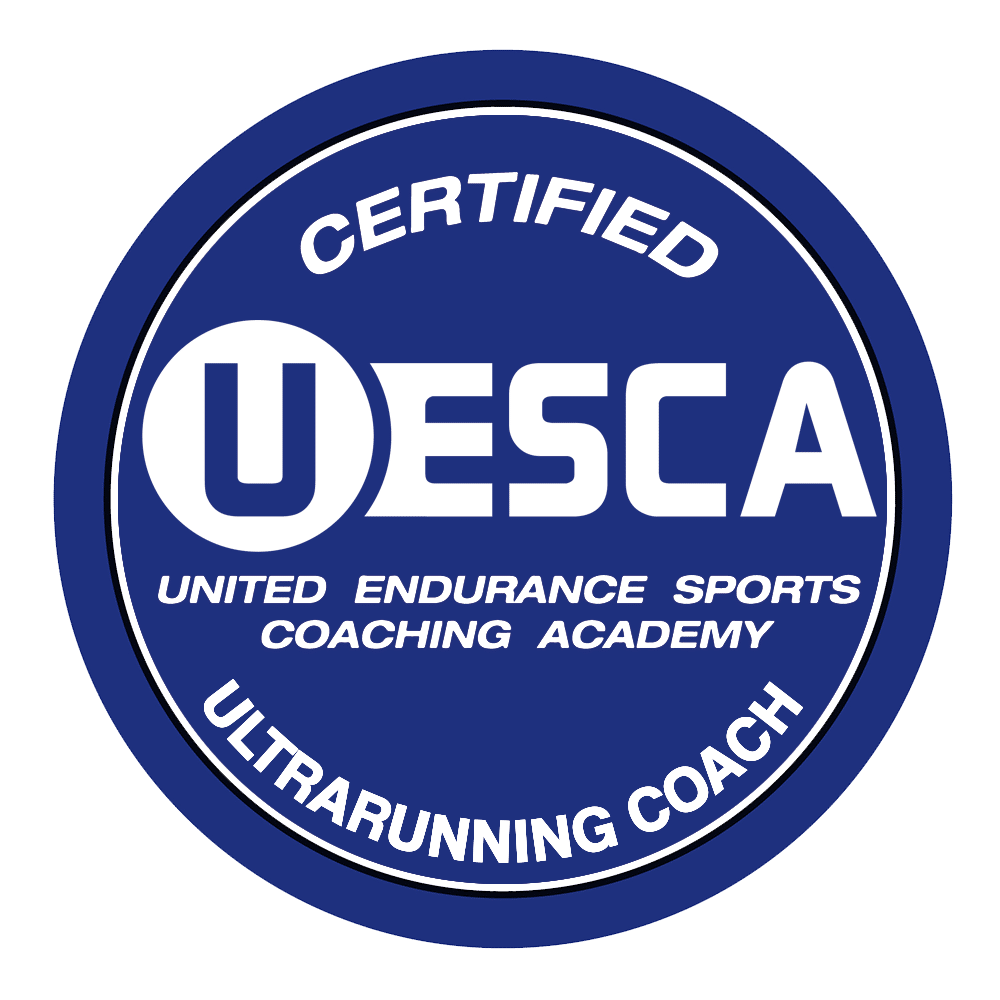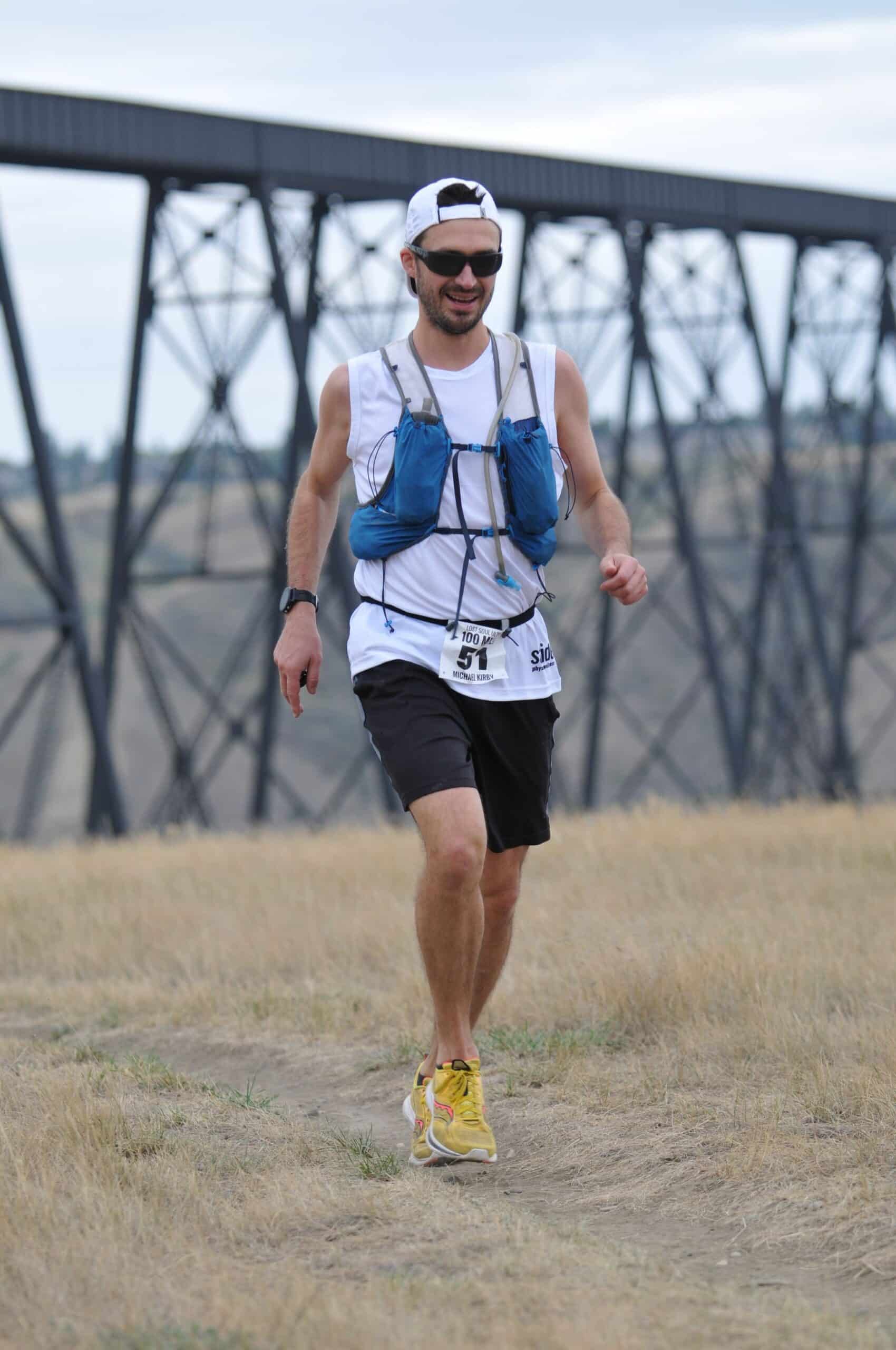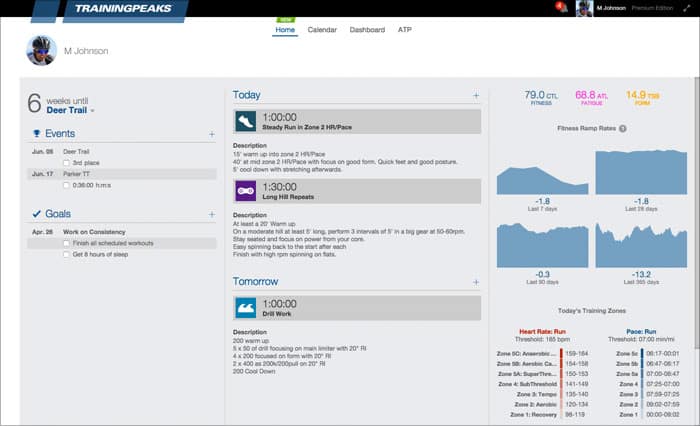
Coaching for All Runners
Reduce your risk of injury, and maximize your chances of success. Receive an individualized training plan and take the guesswork out of your running journey.
Convenience & Accountability
Your program is delivered via the TrainingPeaks App. TrainingPeaks will sync directly with your running watch, so your coach can keep on top of all your activities!
Exercise Program
Receive an exercise program along with your running schedule. The exercises are unique to your needs. If you already have injuries, we can integrate your rehab program as well.



Training Plans
You will receive 4-weeks of programming at each appointment. Programs are delivered on the TrainingPeaks App, and a premium membership is included in the service. There is much more included, so please read on!
+
- All of your runs, including their duration, intensity (speed), and elevation change (if needed).
- If you are using a bike, elliptical, or other form of cardio, this will also be programmed into your schedule.
- An individualized exercise program is also provided, and referenced in your schedule. Your other exercises need to be timed appropriately with all of your runs, so we can’t leave this out. At Stride, we use a program called Physitrack to deliver all strength and mobility exercises. Your calendar will reference these exercises, so you know when to do them.
- Are you involved in other sports or activities not mentioned here (ex. a HITT class)? It is crucial that we consider all of your physical activities, so these are also referenced within your schedule. Recovery time is very important, so we need time all your activities around one another.
+
- Initial Assessment: Our first appointment is always in-person. After you fill-out your intake forms, we dive into your running history and all of the information you give us to create your first schedule. At your appointment, we will go through the schedule and review your running goals. We perform an orthopaedic assessment, and develop an exercise program for you to get started with.
- Follow-up Appointments (in-person): These appointments are for your next 4-weeks of training.
Doing in-person follow-up appointments can be valuable, even if you’re not injured. Many runners appreciate a “tune-up”, to make sure their body is ready to go for the next 4-weeks. We may recommend that the appointment is in-person if we planned to progress your exercise program. - Follow-up Appointments (virtual): If everything is going 100% and you don’t want to come in to the clinic, we can do a virtual appointment. The details can also be delivered with an email, and we can connect online or over the phone to go through it all.
+
+
+
+
+
Training Programs for Both Injured & Non-injured Runners
Training programs can significantly decrease your risk of injury, and can also be exactly what you need to over-come an injury.
Uninjured Runners
Runners have a high prevalence of injury, and many of their injuries are due to training errors. Having a professionally developed program can significantly reduce your risk of injury, and maximize your likelihood of success.
Injured Runners
Many injured runners are told to stop running altogether, and sometimes this can be a mistake. While there is a time and place to stop, many times the thing that broke it (running) is also the thing that helps to fix it!
+
- Avoid Stress-shielding: Stress-shielding occurs when we get injured, so we stop doing everything to protect the injury. There is usually some protection needed, especially in the acute phase of an injury, but eventually it is important to begin loading the injured area again. Stress-shielding is when the injured tissue (ex. tendon) is so protected, that even the healthy parts begin to get weak and lose their integrity. When returning to activity after complete protection, it can be a longer road to get back to where you were.
- Optimal Loading = Better Healing: Our tissues adapt to load (training) as long as it is the right amount and we give ourselves enough recovery time between workouts. Injured tissue is no different. The tissues that got injured with running are often loaded more effectively during running! While strength training can be an effective way to rehabilitate your injury, sometimes running is the best way to target the injured tissue. which can stimulate positive effects.
+
- It can take careful “load management” to get the best results. There is usually a certain amount of running that can be tolerated, and it is important not to cross the line. We work hard to figure out where that line is, and then build from there.
- Mike has also worked with many runners who simply haven’t had their issue properly addressed, and require referrals to other providers. Some injuries require more than physiotherapy. If needed, Mike can order diagnostic imaging, and/or refer you to another healthcare provider who can help.
- Some injuries create a “bottleneck” in the training process, or limit only certain types of running. For example, some injuries may make it so you can train on flat terrain, but can’t do as well going up hills. Mike will work with you to get through the bottleneck, while working on your strengths.
+
About Your Coach

Michael Kirby
Education
Master of Science in Physical Therapy from the University of Alberta (2016/17)
Bachelor of Kinesiology (BKin) from the University of Calgary (with Distinction)
Post-Graduate Training
The Running Clinic Certified+ Professional
UESCA Certified Ultrarunning Coach
Loading The Injured Runner (Certificate)
Certificate in Cognitive Behavioural Therapy (Level 1)
Licensed to Order Diagnostic Imaging
Licensed to Perform Dry Needling / IMS
Licensed to Perform Spinal Manipulations




